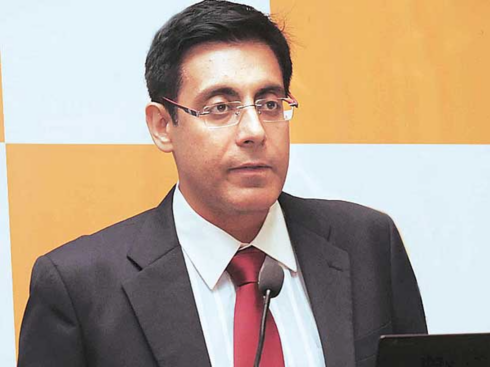
SUMMARY
Startups seek clarity as the government mandates health insurance for workers given the Covid-19 pandemic
Founders say insurance premiums have risen because of the pandemic and costs will be higher in the next year
Digital insurance startups have the opportunity to innovate through technology and customisable policies
Even as the new rules of the workplace for the social distancing generation are being written, companies will have to direct their operations based on new policy as well. For example, India made it mandatory for companies to provide medical insurance to workers while operating in the lockdown, as per home ministry directives last month.
Furthermore, the Insurance Regulatory and Development Authority of India (IRDAI) has also advised insurers to offer comprehensive health insurance products with simple wordings, conditions at an affordable cost for organisations. In addition to this, IRDAI had also mentioned that the companies should be able to continue the medical insurance policy offered by insurers not only for the present situation but for all time.
While the government has mandated health insurance for businesses, there has been a lack of clarity in terms of how businesses should avail medical insurance for their employees. Insurance tech startup founders, as well as corporate wellness management startups, told Inc42 that the government has not specified if the employer has to offer Covid-19 related insurance or comprehensive health plans covering existing medical conditions for its employees and their dependents.
Rising Insurance Interest From SMBs, Startups
Naturally, the insurance industry has welcomed the move, calling it a game-changing moment that will convince startups and small businesses that were undecided about whether to go for a corporate health plan or not. India has one of the lowest penetration rates as far as health insurance is concerned. Employee wellness programmes and medical covers are only seen in the big corporates. Will startups turn to employee plans given the big push?
Sanjay Dutta, chief of underwriting and claims at ICICI Lombard, told Inc42 that the company has seen a 10% surge related to group health insurance from small and medium businesses in the past few weeks, and up to 10% uptake on the entire corporate business. “Basically, in these times, it is very important that all employees have health insurance coverage, because of the simple reason that, you know, the earlier it was few employees per company so companies could afford to not have one,” said Dutta.
Startups are starting to see the benefits of providing family-linked medical cover in retaining talent. With Covid-19, a lot of companies are also using medical insurance as a selling point to attract new hires. But they still have to bear the extra cost of insurance, which will be a big pinch in a tough time. Unfortunately, a majority of the startups in India are barely surviving and are still struggling to pay salaries to their employees. Given the economic crisis, extending the runway will be a chief priority, whereas insurance just adds to the cost of operations.
The High Cost Of Peace Of Mind
An insurance tech startup founder, who offers the group insurance option to his employees, told Inc42 on the condition of anonymity that the premium for renewal is exorbitant in the post-Covid world, where all businesses are trying to increase their own revenue inflow.
“Last year, we had paid a premium of about INR 2.75 Lakh for 30 employees, excluding those who weren’t on the payroll. However, this year, for 45 employees, the insurance company gave an initial quote of INR 19.5 Lakh, stating that they had some bad experience with the claims and the overall situation in the market due to Covid-19. The premium has easily jumped to 7x times compared to the previous year. That is the reality.”
Further, the founder said that most health insurance companies will shy away from giving health insurance to startups with small teams because of the risk involved. “However, we were lucky, after several negotiations we got a discount of 50%. “How many startups will be able to bear this cost,” the founder questioned, baffled.
Insurance is definitely not something the less-funded startups can afford with ease. “Adding more cost head on the books to bootstrapped startups, buying an insurance policy is definitely not easy,” said Noel Coutinho, chief business officer at Hyderabad-based eKincare, which offers health benefits plans for employee health and helps insurers upsell to the portfolio companies.
Overall, the Indian digital insurance market is expected to reach $165.02 Bn by 2024 at a CAGR of over 13% during 2019-2024, according to a report by TechSciResearch. While digital insurance is still a niche within the larger industry, startups such as Go Digit General Insurance, Acko, PolicyBazaar, Toffee Insurance, CoverFox, RenewBuy, and MetamorphoSys are among the technology companies looking to solve challenges such as underwriting and risk through AI and ML models as well as data-based predictive analytics. But the traditional players such as bank-led insurance providers are still the ones dominating the market and have the scale to offer competitive pricing for group health plans as well.
Coutinho said nailing down the exact cost of insurance for businesses is hard as the government has told employers to offer insurance, they haven’t specified what comprehensive health insurance would be. “For instance, will it cover existing illness or maternity, and do they have waiting periods or not, as these things typically increase the cost,” Coutinho said.
Others in the industry also believe a standardised plan will help insurance providers and wellness program managers look at competitive pricing as a USP. This will automatically bring down the cost, argue industry experts.
There also needs to be flexibility in pricing tiers. Paying premiums in lump sum can become a cumbersome task. Instead, startup founders want insurance companies to offer flexible options, such as monthly or quarterly premium payments to those startups that are facing a cash crunch.
Lessons From Retail Insurance
Another grey area is that often the insurance cover does not include family, but in the case of Covid-19, employees quarantining at home need to also consider buying policies for their family members. The medical expense will be huge for the entire family, so naturally, the premium would be higher too. For employers, the full family cover is more expensive but can be considered a retention incentive and additional benefit to employees. So will companies look to reduce such extraneous costs and not provide family cover, and if so will that be effective?
“One possible way of looking at this is a universal health cover like on the retail insurance side for consumers. Since the government has hinted that the insurers have to come up with simple words and simple benefits, chances are that they might come up with a standard cover, with wordings which are specifically curated for this,” said eKincare’s Coutinho.
Needless to say, startups still need a lot of clarity in terms of what should be the minimum insurance cover. It becomes crucial for regulators to come up with thorough guidelines that address these concerns to minimise revenue impact on the already-stressed insurance sector.
“If we look at the last three months, there has been a decline in claim ratio, where insurance claims did not occur. However, once the lockdown restrictions are revoked, we are expecting to see a rise, but it may not increase to a level compared to previous years because the concept of over hospitalisation does not seem to exist and people are more cautious and are taking necessary precautions at home. The mindset is changing as they just do not want to go to the hospitals and use their entire limit,” explained Dr Devika Mehra, senior manager at UIB Insurance Brokers.
Offsetting The Cost
Insurance providers told us that for a team size of 25 members, the companies typically spend about INR 2 Lakh to INR 3 Lakh per year on insurance plans just for employees. It has to be noted that most insurance plans do not cover pre-existing medical conditions, maternity and others — these have to be customised which adds to the cost for startups looking at more modern coverage plans. According to industry experts, if these conditions are added to the health insurance plan, the cost would probably double.
For eKincare’s Coutinho, the USP for insurance products will be customer experience and connect with the end-user, besides driving more savings for the company. At the end of the day, the savings will be more or less the same regardless of digital or traditional insurance, but the difference will be in the delivery experience and the digital ecosystem around the insurance product. “Digital is going to be the next big thing in insurance,” he said.
Indeed, creating value through a digital ecosystem will become more and more crucial if startups adopt work from home for a long time. Most insurance providers use on-ground activities to drive engagement, but now that has a limited scope, so digital touchpoints will be key.
Insuring The Gig Economy
At the same time, it becomes equally important for insurance companies to come up with a basic no-frills cover — rather than a comprehensive one — which is actually affordable (INR 2 to 3 Lakh) for most of the organisation, especially for the companies who haven’t had any kind of group health insurance policy in the past. It’s about giving some reassurance to the employees that they are covered for certain events. With frontline workers, bus and cab drivers demanding insurance now, there’s greater awareness about the options among workers.
It has to be noted that gig workers such as delivery partners and drivers for Uber, Ola, Swiggy, Zomato and others are not specifically included in this directive issued by the government. However, proposed changes to the labour law could bring gig workers health insurance benefits under extended coverage of the Employees’ State Insurance Corporation Act. Many Indian startups have added insurance and medical cover in recent months for their delivery partners in light of the Covid-19 emergency, while drivers for Ola and Uber are also insured against accidents, but medical cover has so far been out of reach for such gig workers.
So an affordable basic plan that’s built around the needs of startups will become more vital if the number of coronavirus cases keeps rising in momentum, especially now that the lockdown has been lifted in most parts of the country. As many startups look to get back to the office, employers need to understand the fear in the employee’s mind when travelling to work using public transport. Having the medical cover will definitely have a bearing on the peace of mind for an employee.
Insurance companies believe that for too long companies have been able to ignore the insurance option, which is no longer a possibility. However, they are also cognizant of how businesses have to plan for survival in the first place, and insurance may be a tough sell in the short term.


























